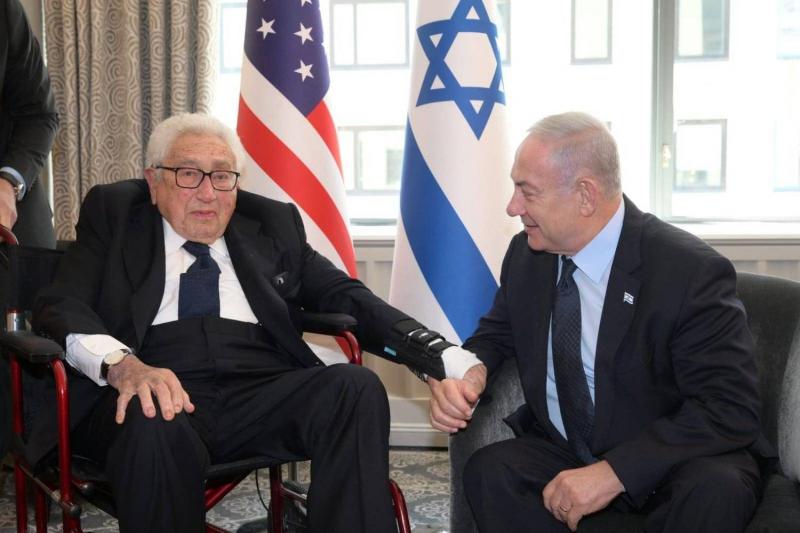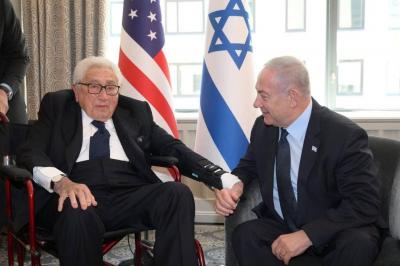For about nine months, since the Israeli war on the Gaza Strip, I have closely followed the details of negotiations, discussions, and American tours in the Middle East. I hoped for an end to the war rather than bombastic statements from U.S. administration officials. However, I found a blurred image, confusion in American vision, and perplexity in dealing with the idea of ending this war. I wondered: is there really a lack of vision, or a void in thinking minds, or is it a deliberate and systematic approach? Before I answered these questions, another question occurred to me: What if the famous American theorist, Henry Kissinger, were still alive? What would he advise the occupants of the White House and Israel on dealing with this war?
In reality, the details of what has happened since October 7, 2023, indicate a lack of vision and horizon, coupled with confusion in calculations, alongside an intentional approach to prolong the duration of the war. To better understand the nature of these surroundings that accompany the war, we must recall scenes of the American President, his Secretary of State, his Secretary of Defense, and his National Security Advisor during the Israeli war council, as these scenes confirm that this administration has clearly favored Israel from the beginning. It has thus removed itself from the role of the mediator standing at an equal distance between the parties to the conflict. Since the war began, it has spoken through its Secretary of State about the day after the war, even though the fighting has not yet ceased. Consequently, we find ourselves facing a conclusion that the U.S. administration is unable to present a coherent and integrated proposal that would be acceptable to both parties and align with American interests in the region.
This confused American image in managing the war led me to ask the question of what if Kissinger were still alive in light of the absence of a similar model among current American policymakers? There is no doubt that Kissinger, who passed away over a hundred years old, would implement his famous theory that "diplomacy is the art of restraining power," meaning that diplomatic dialogue is the shortest path to achieving political goals. This is precisely what both parties to the conflict need now, especially as the analysis of the political and field reality confirms that the region needs minds that think outside the strategic box, particularly the type of "step-by-step" diplomacy championed by Henry Kissinger, which contributed to ending the American-Vietnamese war at the end of the last century.
This type of diplomacy was the successful path for restoring U.S.-Chinese relations, which had been severed for 30 years until Kissinger managed to rebuild bridges through "step-by-step" diplomacy, or "ping-pong," that involves shuttle diplomacy that knows no despair or frustration. The world cannot forget Kissinger's diplomatic skills in keeping Washington away from the brink of war with Moscow during the Cold War.
This "Kissinger-esque" will and belief in diplomacy for peace and global stability is now absent, not only from the leaders of the Israeli war on Gaza but also in the maps of Eastern Europe, especially in managing the Russian-Ukrainian war and the militarization in the Indo-Pacific region. The absence of this type of heavyweight diplomatic minds has led to the prolongation of the war and an increase in its future dangers, raising the level of caution regarding a regional explosion between conflicting regional powers that might lead the area into traps from which it is difficult to escape.
Therefore, the U.S. administration now needs new editions of advisors and policymakers like Kissinger, who knows how to decode situations and end wars at the right time. The holder of this creative diplomatic theory believed that the continuation of wars affects not only their direct parties but also the presence and stature of the United States itself. This is the meaning and concept that the occupants of the White House need amid the fires gripping various regions of the globe, which are significant for the future of global stability and America's position in the current international system, especially as we face calls for forming a multipolar world in which Washington is threatened with losing its traditional place at the top of the leadership hierarchy of the world.
Amid this global confusion, the loss of vision within the U.S. administration, and the calculations and estimates that everyone agrees are unclear and lack credibility and acceptability, I warn against the dangers of neglecting "step-by-step" diplomacy and treating the management of war as a substitute for ending it. The continuation of this full support for Israel will undoubtedly lead the region and the area to endless explosions and conflicts whose consequences are difficult to predict.




